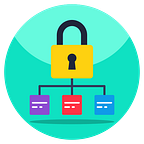Securing Your Online Academic Journal Access
To secure your online academic journal access, start with strong password practices. Use a mix of upper and lowercase letters, numbers, and symbols to create complex passwords. Avoid personal information and update passwords frequently. Implement multi-factor authentication, which requires two or more verification factors, to add an extra layer of security. Use a secure VPN when accessing journals, keep your device software updated, and avoid unsecured public Wi-Fi. Monitor login activity, audit user accounts, and have an incident response plan. By following these thorough measures, you’ll dramatically enhance the protection of your sensitive academic content. To explore further into securing your online access…
✅ Current deal: 🔥Get NordVPN with up to 72% OFF!🔥
Strong Password Practices
Crafting strong, unique passwords is paramount when securing access to online academic journals, as weak or reused credentials can leave your sensitive data vulnerable to unauthorized access.
Use a combination of upper and lowercase letters, numbers, and symbols to create complex passwords. Avoid personal information and update your passwords frequently for maximal protection.
Multi-Factor Authentication Solutions
While sturdy passwords are a crucial foundation, implementing multi-factor authentication (MFA) offers an additional layer of security to safeguard your access to online academic journals.
MFA requires users to provide two or more verification factors, such as a password and a one-time code sent to a registered device, vastly reducing the risk of unauthorized access even if your password is compromised.
MFA adds an extra step to the login process, requiring a second form of identification. This could include a fingerprint, facial recognition, or a one-time code sent to your mobile device.
MFA greatly enhances the protection of your sensitive academic journal credentials and content.
Network Security Considerations
Typically, you’ll also need to account for network security measures when accessing online academic journals, as your device’s connection to the internet can present risks.
This includes using a secure virtual private network (VPN), keeping your device’s software updated, and being cautious of unsecured public Wi-Fi networks.
Adhering to best practices for network security is essential to safeguard your access to sensitive academic content.
✅ Current deal: 🔥Get NordVPN with up to 72% OFF!🔥
Monitoring and Incident Response
Monitoring your online academic journal access is crucial to promptly detect and respond to any security incidents. Continuously reviewing login logs, usage patterns, and anomalies can help you identify and address potential unauthorized access attempts or suspicious activities.
Implementing a robust incident response plan guarantees you’re prepared to quickly mitigate the impact of any breaches and restore secure access to your academic resources.
Regularly audit user accounts and permissions.
Implement multi-factor authentication for enhanced security.
Conduct security awareness training for all authorized users.
Related Articles:
- Is It Safe to Use Password Managers on Campus Wi-Fi?
- Protecting Your Privacy in Online Student Forums
Affiliate Disclosure: By clicking on our links, we may earn commissions at no additional cost to you.
